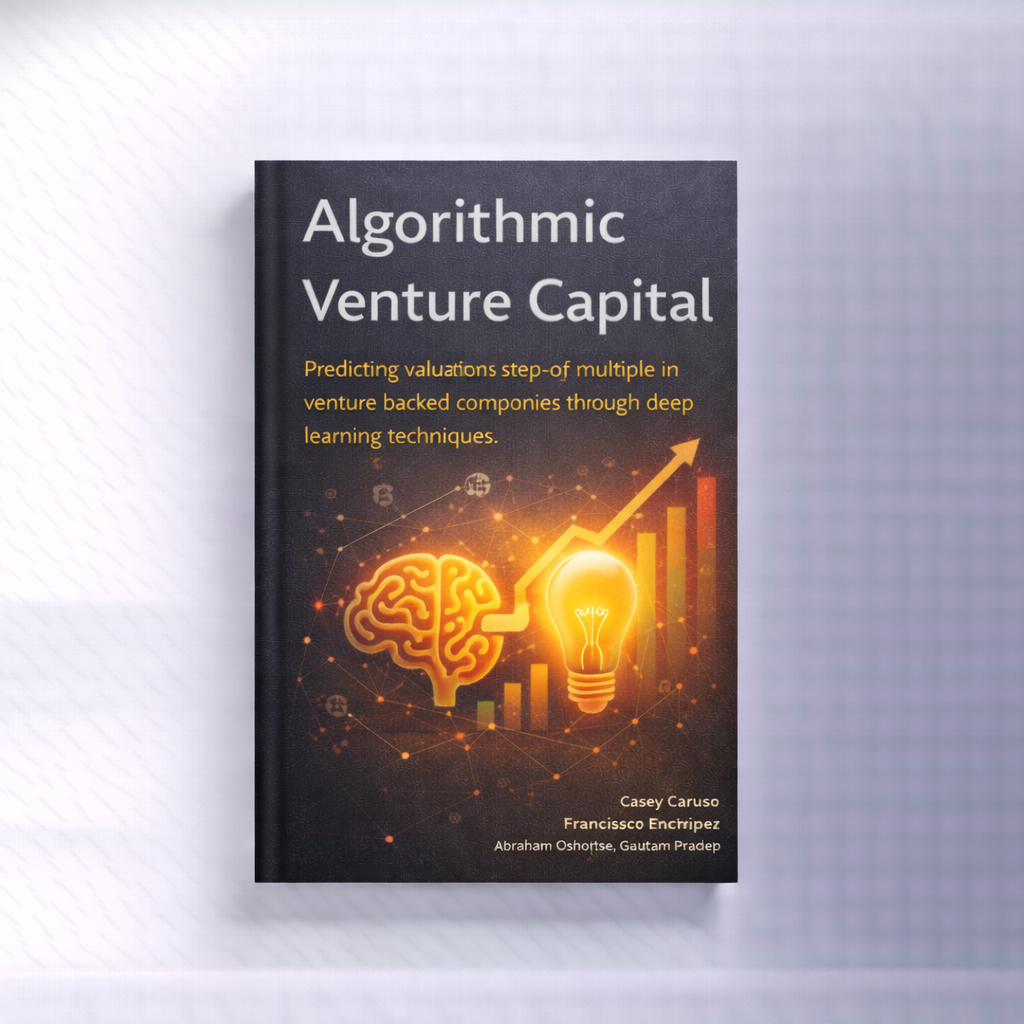Algorithmic Venture Capital,Predicting valuation step-up multiple in venture backed companies through deep learning techniques
This Stanford project explores the frontier of 'Deep Learning' in valuation prediction. It tests neural networks against historical Crunchbase data to predict which Series A companies will see a 'Step-Up' in valuation at Series B. The findings suggest that non-linear variables—like the 'network centrality' of the founding team (who they know) and the timing of news cycles—are powerful predictors of valuation pops. It challenges the traditional DCF model, proposing that startup pricing is more behavioral and network-driven than fundamental.
Why is relevant?
Valuation is an art, but VCs are trying to turn it into a science. For founders, this highlights the importance of 'Signal' management. Being in the right networks and timing PR releases isn't just vanity; it feeds the algorithms that determine your perceived market value. Understanding these hidden variables can help you engineer a higher valuation multiple.

Author
Casey Caruso, Francisco Enriquez, Abraham Oshotse, Gautam Pradeep
Publication date
December 1st, 2018
Difficulty
Expert
Keywords
- Algorithmic VC
- deep learning valuation
- valuation step-up
- neural networks in finance
- network centrality
- startup pricing
- Series B prediction
- quantitative finance
Last update